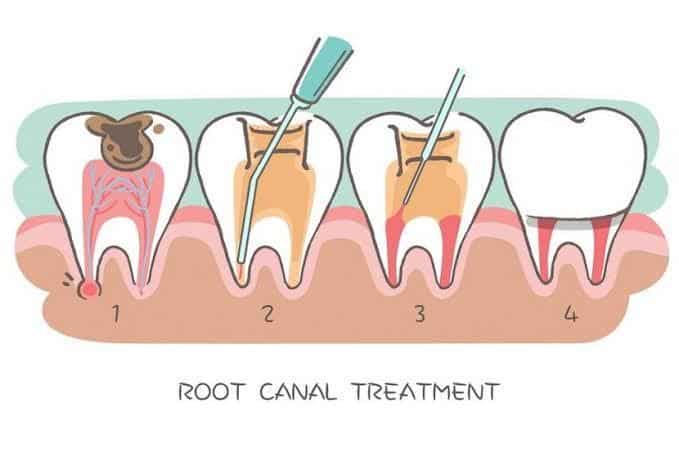What are the treatments for a failed root canal?
When a tooth is infected or decayed, a root canal may be required to remove the affected nerve and pulp. Root canals are frequently performed when an infected tooth exhibits signs that necessitate prompt treatment, such as acute discomfort. One of the most popular endodontic…
7 Signs You Need a Root Canal and How to Spot Infection After Treatment
Root canals are a common and effective dental procedure to treat and save severely damaged or infected teeth from gum disease, tooth decay, and injury. They involve removing the infected pulp, cleaning, and sealing the tooth to prevent re-infection. The pulp contains nerves, blood vessels, and connective…
4 Myths About Root Canals
If the possibility of a root canal makes you feel uneasy, you’re not the only one. However, millions of root canal procedures are performed every year to save or strengthen an infected tooth. They’re incredibly safe and effective, despite the myths you may have heard or read…
8 Reasons to Have Your Root Canal Done Now
Endodontic therapy is the most practical solution when you have any issue involving tooth pulp. In the best-case scenario, the fact that your dentist is recommending some sort of root canal treatment indicates that the tooth is worth saving. If your dentist wants to do a root…
What are the Signs of a Successful Root Canal Treatment?
Have you been referred to an endodontist because you require root canal treatment (RCT) for an infected tooth? Or maybe you recently completed the treatment. We understand that patients may have many questions before undergoing the RCT. Our team at York Hill Endodontics will gladly…
Guidelines That You Need to Follow for Root Canal Treatment
Outer enamel layer in a tooth encloses a hard layer called dentin and the innermost soft tissue pulp. This pulp connective tissue contains blood vessels and nerves. The pulp chamber and root canals house the pulp tissue in a tooth. In root canal treatment, infected…





